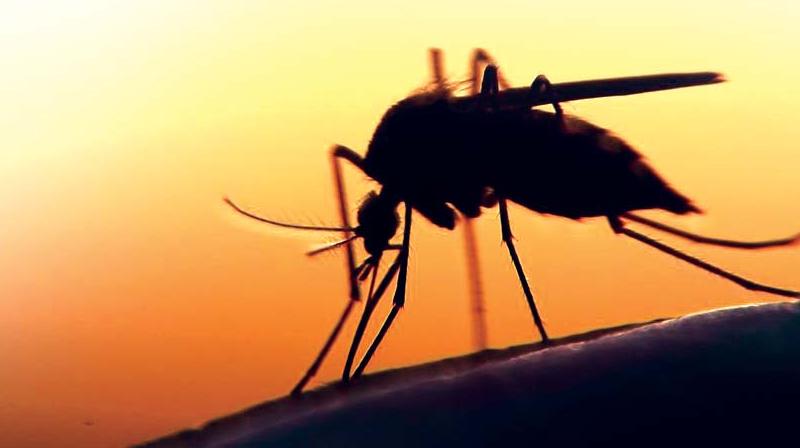BBMP fights on but can’t swat malaria
Ask a BBMP official and he puts the onus on the people themselves to make the city free of mosquitoes.

Summer showers in Bengaluru mean mosquitoes and a sharp spike in diseases like malaria and chikungunya. 433 cases were registered in BBMP limits in 2018 although, without adequate data from the private healthcare sector, the number might be even higher.
BBMP has begun its routine fogging across the city but with the rain leaving stagnant pools everywhere, areas that are water-logged or overgrown need to be cleared as well, reports Aknisree Karthik.pril showers are a relief to Bengalureans from the heat of summer, but they also bring with them the menace of mosquitoes, which seem to proliferate in rain and after dark. Those living near water bodies like lakes and ponds and also storm water drains and open spaces like parks and playgrounds are the most affected as these places are safe havens for mosquitoes to multiply.
The uncleared garbage piles in the city too are a breeding ground for the winged menace, which bring with them the threat of malaria, dengue and chikungunya, compounding the troubles of the people .
Complained Ms Shruthi, a home-maker from Hanumanthnagar, “ Once the sun sets, we have no option but to close all the windows in our house and turn on the mosquito repellants as the open ground nearby has become an excellent breeding ground for mosquitoes.”
The situation appears to be no different in Chalwadipalya, where a storm water drain is the culprit. Said Ms Lavanya, a resident, “ Without mosquito coils and mats, our lives would be hell here. We cannot stay for even an hour without these repellants as our house is situated next to a storm water drain.”
Although the BBMP claims to carry out regular fogging, the people are not convinced its doing its job. “We don’t know when the last time fogging was carried out in our area. Many meat shops here do not give their waste to the empanelled vendors, but just dump it in the open where it attracts lots of flies and mosquitoes,” grumbled Mr Hafeez, a shamiana dealer near Chiklalbagh.
Ask a BBMP official and he puts the onus on the people themselves to make the city free of mosquitoes. “They must keep their premises clean and free from any water-logging,” he suggested, noting that the recent rain had left water stagnating in many areas where mosquitoes were now breeding freely.
While observing that the rainy season sees a spike in the number of cases of malaria, chikungunya and dengue in the city, he claims the BBMP is doing its duty of fogging and creating awareness among people on how to keep their surroundings free of mosquitoes and save themselves from these diseases.
Not enough data from pvt sector: BBMP
That malaria continues to stalk the city is evident from the National Vector Borne Disease Control Programme, which reported 433 cases in Bengaluru last year, mostly from private hospitals.
But the figure could be more as not all of the nearly 4,000 private health facilities in the city share their data with the BBMP, according to its officers. They complain that this defeats the very purpose of its health wing as if it doesn’t have the full data it cannot take the required preventive measures to contain the spread of the disease, which can be fatal sometimes.
“With many malaria cases being treated in private hospitals , which don’t always bother to share the numbers with us, the BBMP cannot do proper planning to tackle the diseases,” rued one officer, pointing out that under the rules, all healthcare centres including hospitals, testing centres and labs were required to send their reports to the BBMP’s Public Health Information and Epidemiological Cell.
“The city was very proactive in tackling H1N1 cases as the private hospitals were told to immediately report them and when they did, we didn’t waste any time in dealing with them. But this is not the case with malaria,” he added sadly, suggesting that healthcare facilities should be sensitized to ways of dealing with malaria and also slapped with fines if they still did not fall in line by reporting the cases of malaria, chikungunya, and dengue to the authorities concerned.
433 cases in 2018
- As per reports from the National Vector Borne Disease Control Programme, in 2018 there were 433 cases of malaria in BBMP
- limits
- Majority of the cases were from the private hospitals.
- There are nearly 4,000 health facilities in the city like hospitals, clinics, testing centres and labs
- BBMP admit that not all of them share the data with the BBMP.
- This is preventing the BBMP from identifying from where are these cases coming and to recognize the cause and eliminate them.

